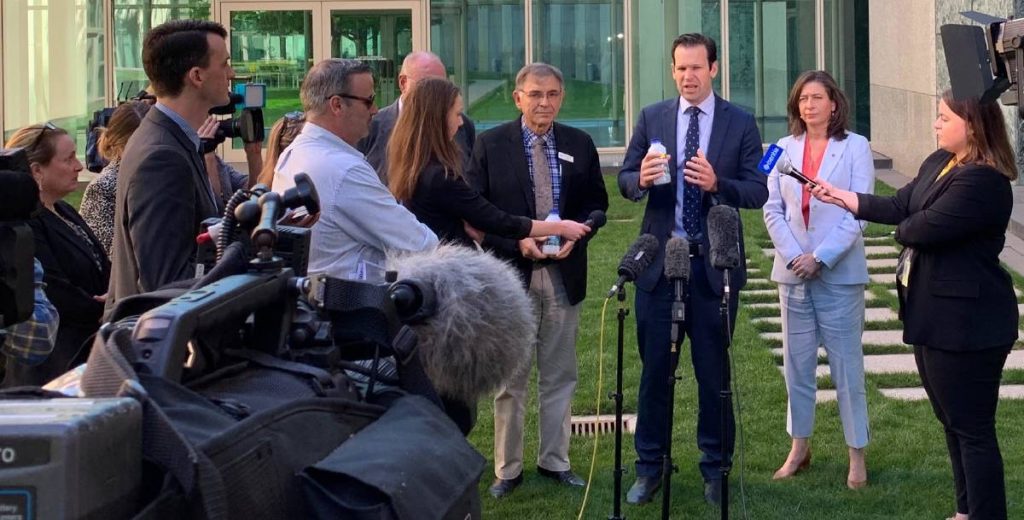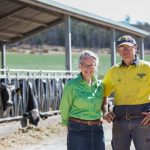
North Queensland-based Senator Susan McDonald took the extraordinary step this morning (Thursday) calling on the heads of the big two supermarkets to stop selling cheap milk and pay farmers a fair price.
“While farmers have been publicly suffering, the silence from Coles and Woolworths has been deafening,” Senator McDonald said.
“These supermarkets constantly advertise how virtuous they are by sourcing ethical coffee, dolphin-free tuna and RSPCA-approved chickens, but the farmers and the Australian public deserve to know what ethical standards are being applied when Queensland’s dairy industry is being pushed to the wall by shameful buying practices.
“If Coles, Woolworths and processors refuse to appear at the public hearing in Canberra, then they will send a strong message that they don’t care about farmers, they’re happy for Queensland’s dairy industry to sink and they’re happy for people to lose easy access to local, fresh milk.”
While farmers have been publicly suffering, the silence from Coles and Woolworths has been deafening.
– Senator Susan McDonald
Queensland Dairyfarmers’ Organisation president Brian Tessman said the supermarkets needed to increase the minimum price for discount milk to $1.50/litre to reflect the cost of production.
Mr Tessman said in Queensland and northern NSW, farmers faced a cost-of-production of about 72c/litre. Farmers need something between 72-76c/litre to be making a decent living, he said.
“There will be regional variances to cost-of-production, but as an average for farms producing for the domestic fresh milk market, these figures give a good indication of the state of play,” Mr Tessmann said.
Senator McDonald said the Morrison Government was currently finalising a Dairy Code of Conduct, which aimed to protect dairy farmers from unscrupulous supply agreements that locked farmers into selling milk for less than it costs to produce.
“Prior to $1-a-litre milk being introduced on Australia Day 2011, Australian consumers were paying $1.35/litre for milk. I note our New Zealand neighbours are currently paying a shelf price of A$2.20/litre for fresh milk,” she said.
“Eight years of milk price wars has allowed supermarkets and processors like Lactalis to engage in disgraceful conduct that is hurting farmers, their families and the regions they live in.
“Coles and Woolworths need to do the right thing and end this ridiculous milk price. Consumers have indicated they will pay more for milk so that farmers can stay afloat. I say, listen to them and raise your prices now, or come to Canberra and explain why you won’t.”
Both Coles and Woolworths were contacted for comment.
A statement issued by Woolworths to Queensland Country Life says the supermarket is yet to receive any correspondence from the Senator regarding the hearing that has been referenced in media statements.
“These are matters best directed to the dairy processors who negotiate farmgate prices with dairy farmers independent of retail prices,” the statement reads.
“We’ve been taking steps to support a more sustainable dairy industry while the Federal Government works to deliver the evidence-based structural reform the ACCC recommended following its 18-month inquiry.
“Since September 2018, our drought levy has contributed an extra $29m in relief to more than 450 Australian dairy farmers.
“On top of the levy, we have also agreed to wholesale cost increases from milk processors across the dairy cabinet in response to rising farmgate prices.”
A statement issued by Coles says the supermarket is currently paying dairy processors the highest wholesale prices for dairy products in several years.
“Coles continues to work towards making Australia’s dairy industry more sustainable and is exploring long-term solutions with government and industry stakeholders,” the statement says.

























